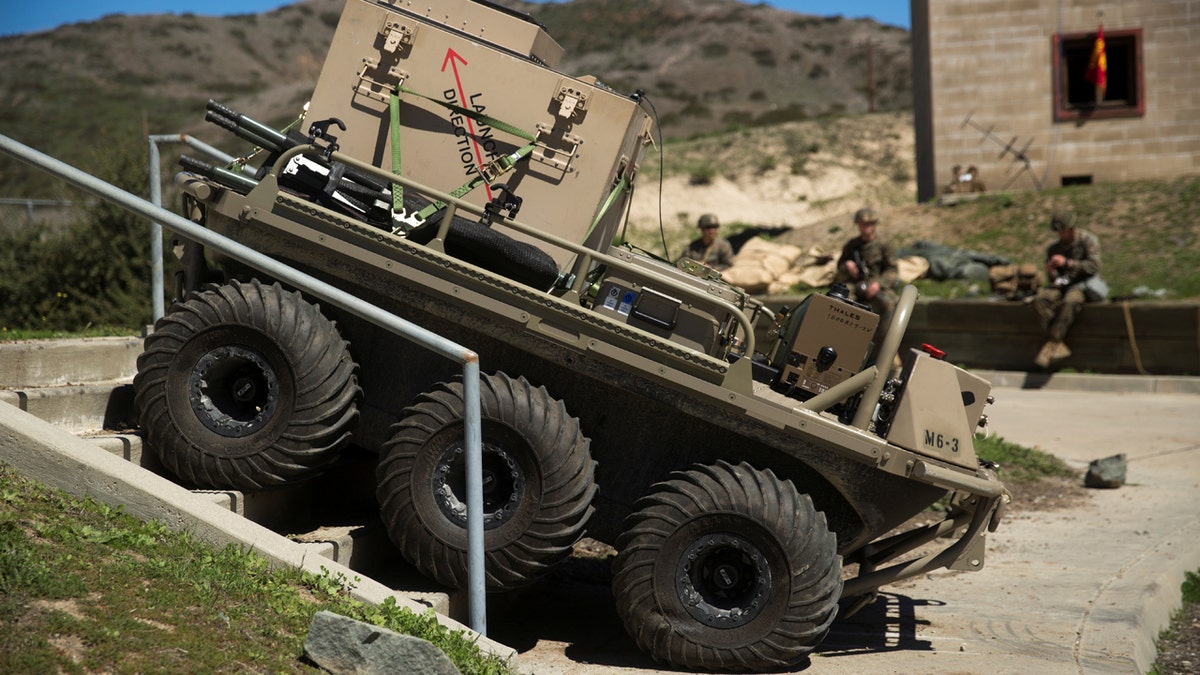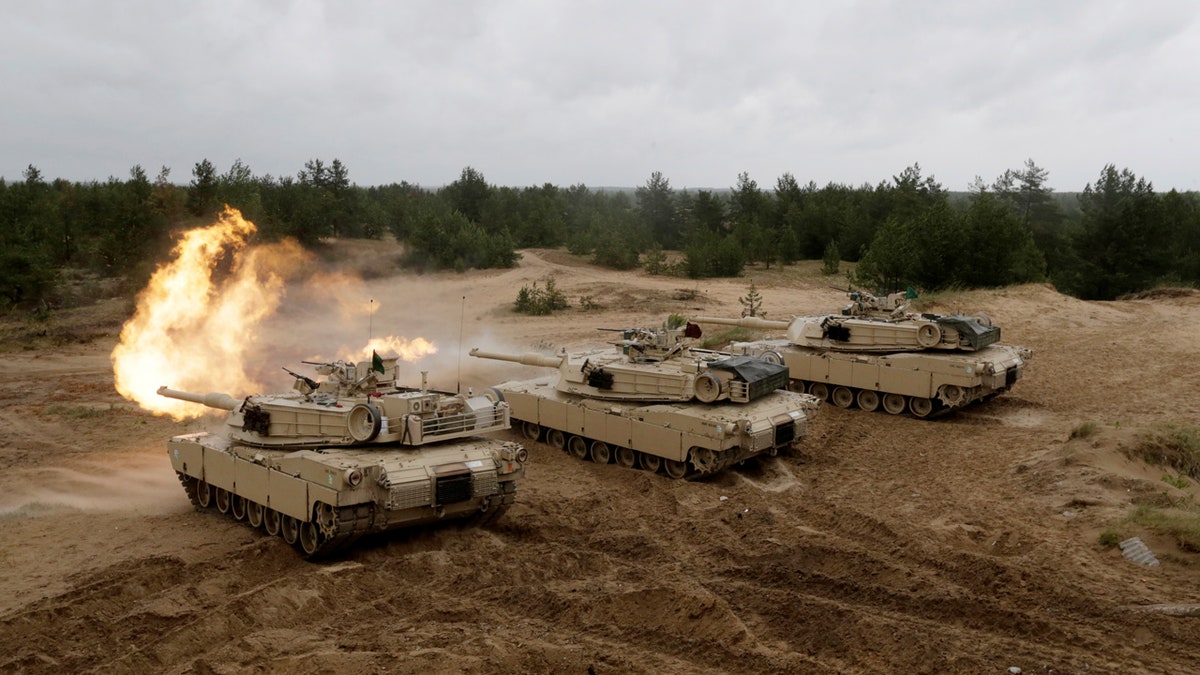
A Multi-Utility Tactical Transport (MUTT) is tested during the Urban Advanced Naval Technologies Exercise 18 (ANTX18) at Camp Pendleton, California, March 19, 2018. (U.S. Marine Corps/Lance Cpl. Robert Alejandre/Hanout via REUTERS)
As companies like Uber, Tesla and Waymo rush to be the first to make driverless cars a mainstay, it may be the Pentagon that wins the race for the self-driving vehicle.
According to Michael Griffin, the undersecretary of defense for research and engineering, the United States Army will have self-driving vehicles operating on the battlefield long before they’re on U.S. streets and highways.
"We're going to have self-driving vehicles in theater for the Army before we'll have self-driving cars on the streets," Griffin told lawmakers last month during a hearing on Capitol Hill. "But the core technologies will be the same."
US MILITARY'S MYSTERIOUS X-37B SPACE PLANE SPOTTED BY MILITARY TRACKERS
The big reason for the Pentagon’s interest in self-driving vehicles is the high risk soldiers face when driving into a combat zone. Griffin noted in his testimony that 52 percent of all battlefield casualties are caused when soldiers are delivering fuel, food or other supplies.
"You're in a very vulnerable position when you're doing that kind of activity," Griffin said. "If that can be done by an automated unmanned vehicle with a relatively simple AI driving algorithm where I don't have to worry about pedestrians and road signs and all of that, why wouldn't I do that?"
Self-driving cars have recently taken a hit after a woman in Arizona was killed by a self-driving Uber vehicle. Believed to be the first of its kind, the accident caused the company to suspend all testing of self-driving vehicles in cities across the country.
Despite the horrific accident, not all companies have ceded their autonomous vehicle testing. Both Ford and General Motors have continued their testing on public roads, while Toyota told The New York Times in March its drivers would "take a couple of days off" so the company could assess the situation.
While there is a slew of evolving legislation on autonomous vehicles – mostly at the state level – the military will also have to follow certain regulations if it wants its vehicles driving on the battlefield.

U.S. M1 Abrams tanks fire during the "Saber Strike" NATO military exercise in Adazi, Latvia, June 11, 2016. (REUTERS/Ints Kalnins)
"The regulatory structure here in the U.S. and the countries where the U.S. may be sending troops are very different," Karlyn Stanley, a researcher and lawyer at the RAND Corp, told Bloomberg. "How autonomous vehicles are going to be regulated — in terms of safety, cybersecurity, privacy and liability — those are going to be critical issues."
The Pentagon has long been on the frontlines of developing technologies, especially in regards to the Internet and space flight, and it is no different with self-driving vehicles. The Defense Advanced Research Projects Agency (DARPA) sponsored its first competition on self-driving vehicles in 2004 and continues to fund research into the technology.
Besides delivering food and fuel, the military is also looking into using similar technology for unmanned tanks and smaller vehicles that can disarm bombs. While these vehicles would be remotely controlled and not autonomous, the Army already has plans to start testing in the next five years remote-controlled tanks that have the same amount of firepower an M1 Abrams.
MEET THE US MILITARY'S WARSHIP KILLER
Critics of the autonomous weapons say there needs to be a human involved in all decision-making and that these machines should not be able to make their own life-and-death targeting choices.
"Self-driving vehicles for battlefield logistics resupply are obviously more benign than autonomous weaponry," said Charles Dunlap, a retired Air Force major general who's now a law professor at Duke University, according to Stars and Stripes. "But it would still be legally and ethically necessary to demonstrate that they can be used without excessive risk to civilians who may be caught up in the fighting."




















